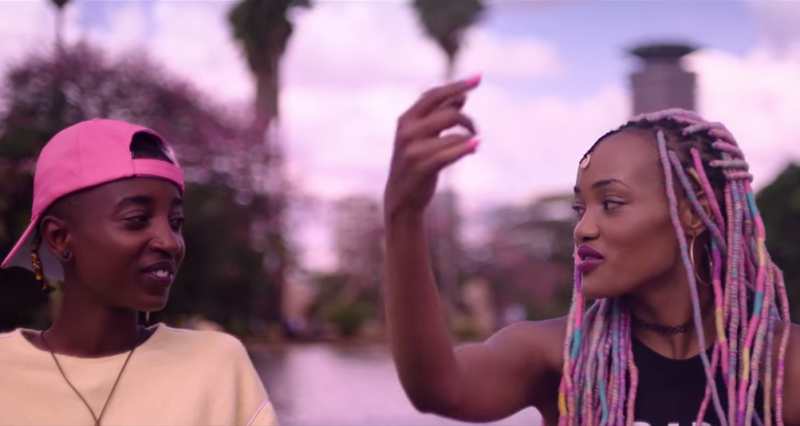Friendship

By Kolawole Oludamilare
Rafiki, through a friendship that transcends prejudice, explores a most contentious discourse within the African society. At the height of critical expressions, revolutionary thoughts and liberal claims, many seemingly advancing African societies are still naïve and afraid or blindly adamant to accepting the reality which confronts them. The film, stylishly, challenges a society in recognizing itself without prejudice or any form of stereotype or preconceptions or excuses.
Rafiki, a Swahili word that simply means friendship, is made of vibrant colors, as vibrant as its subject matter. It follows an ‘unlikely’ love affair between two young ladies whose feelings for each other they seek to express in a society where it is forbidden by government law and societal norms to do so.
The film, adapted from a story by Monica Arac de Nyeko and directed by Wanuri Kahiu, features Kena and Ziki who are neighborhood teenagers. Both girls already have enough barriers to set them far apart: class difference; their fathers are political rivals; one befriends boys in the neighborhood while the other is always in the company of her girlfriends; not to leave out the neighborhood gossips. But all barriers seem to melt away whenever Kena lock eyes with Ziki. Soon an emotional feeling is established between the two and above societal prejudice and self-doubts the two struggle against odds to keep their love affair afloat. This secret, if blown open, might earn them death or a long term behind bars.
One might want to question the bravery of this film, not by the message it’s trying to pass but by the acting itself; Ziki’s character can be read as needlessly naive—like a twelve year old. This is evident in her puerile attitude, having little or no idea what their relationship is all about. “What did you expect to happen either way?” she asks Kena, after the chips are down and they have suffered a life-threatening prejudice from the society. “Do you expect that we have this beautiful family?”
Politically, Rafiki has gotten everything right. Being the first of its kind on Kenya’s soil, the film stirred the government and made it uncomfortable for its brutal laws on homosexuality. It’s been a bold and a daring step by Wanuri, and this, above everything else, is what has gotten the world’s attention. Needless to say that many more of such daring is needed on the African continent.
But the film, I believe, is not made to be perfect as much as it is meant to make a clear enough human right statement: Homosexuality is an expression of human freedom; a right that should be fought for and exercised like any other human right. This is one of Africa’s first films on the embroiling topic. And in all of its imperfections, its lack of nuances that makes it look almost melodramatic, it is very instructive still, very colorful and endearing to see.




